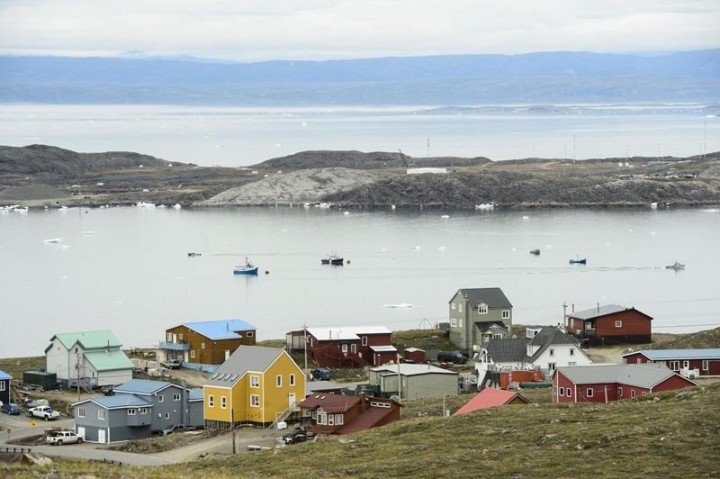YELLOWKNIFE — Meeka Atagootak says the house in Pond Inlet on Nunavut’s Baffin Island that she shares with her children and grandchildren is “unlivable” 12 years after a water truck hit and damaged it.
The elder says she has had to deal with flooding, rusty pipes, mould and a deteriorating foundation, which have led to frequent health problems.
Getting help has been slow, she says.
“It’s been a struggle when no one is really taking care of us,” she recently said in Inuktitut before the House of Commons Standing Committee on Indigenous and Northern Affairs.
Atagootak said she had trouble getting federal support because she owns her home, and her insurance doesn’t address northern needs. By the time repair supplies arrived by sealift, she said, they were no longer adequate because problems with her home had worsened.
Atagootak is one of the thousands of Inuit facing housing issues in Inuit Nunangat — the Inuit homeland in Canada comprising communities in Nunavut, Northwest Territories, Northern Quebec and Labrador.
A recent report from Statistics Canada indicates the housing crisis there has improved little over the past five years and, in some cases, has worsened.
Data from the 2021 census show almost a third of the nearly 49,000 Inuit who calls Inuit Nunangat home were living in dwellings in need of major repairs, an increase of 1.2 percent since 2016. Overall, about 53 per cent of Inuit in Inuit Nunangat were living in crowded housing in 2021, a decrease of 1.2 per cent from five years prior.
Inuit have faced housing challenges since the federal government established the first permanent settlements in the North in the 1950s. Issues like overcrowding and black mould have been documented in many homes in recent years.
A 2017 report from the Standing Senate Committee on Aboriginal Peoples detailed the severity of the housing crisis in Inuit Nunangat and called on the federal government to provide stable, long-term funding, among other measures.
In March 2021, then Nunavut NDP member of Parliament Mumulaaq Qaqqaq released a report documenting “inhumane” housing conditions in several communities, including holes in walls, sewage problems and crumbling floors.
Qaqqaq said the fault “lies squarely with the federal government,” as the Nunavut Housing Corporation is underfunded.
“My people need help. They need that help now. Promises don’t get rid of mould. Words don’t fix windows and doors. Empathy doesn’t fix leaking pipes,” she wrote.
Living in poor housing conditions has been linked to the spread of disease, chronic illness, poor mental health and family violence, and can contribute to poor socio-economic outcomes. A 2019 study in the Journal of Epidemiology and Community Health found it to be a factor in the disproportionately high rates of tuberculosis among Inuit.
Housing issues in Northern Canada are made worse by the cold and changing climate, a lack of transportation infrastructure, a short construction season and high costs.
In a 2022 pre-budget submission, Inuit Tapiriit Kanatami, an organization representing Inuit in Canada, said it would take more than $3 billion over the next decade to construct needed new housing and maintain and repair existing homes in Inuit Nunangat.
The 2022 federal budget promised $150 million between 2022 and 2024 to support affordable housing and related infrastructure in the North, including $60 million each to N.W.T. and Nunavut. It also included $845 million over seven years for housing in Inuit communities and plans to co-develop and launch a northern, urban and rural Indigenous housing strategy.
The federal government said that since 2018, Inuit regions have built 120 units with funding through the Inuit Nunangat Housing Strategy. Since the end of 2021, it said, a total of $173.8 million had been invested in creating or repairing 873 housing units in Inuit Nunangat through the National Housing Strategy.
“We recognize there is still work ahead, which is why we are committed to working hand-in-hand with Indigenous partners to ensure everyone has a safe and affordable place to call home,” a spokesperson for Canada Mortgage and Housing Corporation wrote in an email.
Housing NWT said since it partnered with the Inuvialuit Regional Corporation in 2018, 34 new public housing units have been constructed in the Inuvialuit region. And over the past three years, it completed major repairs and renovations to 56 units. The housing authority and Inuvialuit Regional Corporation are currently working on a housing strategy.
In its mandate released in March, the Nunavut government committed to develop at least 1,000 housing units. A 2020 territorial report estimated 3,545 households were in need of housing.
The 2020-2021 annual report from the Nunavut Housing Corporation says construction on 20 public housing units and 12 staff housing units were completed that fiscal year. Several construction projects, including housing, have since been cancelled due to rising costs.
In an email, it added that it has spent more than $26 million to deal with mould in public housing since 2016, and it added $7 million to manage mould in its 2022-23 budget.
This report by The Canadian Press was first published Oct. 16, 2022.
___
This story was produced with the financial assistance of the Meta and Canadian Press News Fellowship.
Emily Blake, The Canadian Press


































